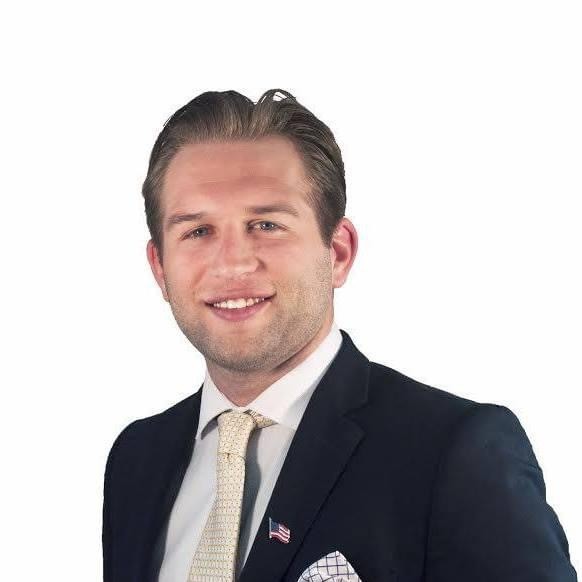
UC, Nexigen agree to collaborate on AI security
Partnership will increase research opportunities between the business and university
An agreement between the University of Cincinnati and information technology and cybersecurity firm Nexigen will lead to collaboration on artificial intelligence, which includes a goal of making the technology more secure.
Nexigen, one of the Cincinnati region's largest IT service and cybersecurity firms, builds technology solutions for companies in the United States. While not a legally binding contract, the agreement between the Kentucky-based company and UC will lead to cooperation on securing grants, give UC students real-world experience and provide Nexigen with expertise from UC faculty and students.
“Big companies in the region or across the country can leverage the University of Cincinnati’s resources and Dr. Kelly Cohen’s research team,” Nexigen co-founder and CEO Jon Salisbury said. “We think we can bring groups into UC to get research done on their new generative AI projects.”
Kelly Cohen, PhD, director of AI Bio Lab at UC Digital Futures and the Brian H. Rowe Endowed Chair in aerospace engineering at UC’s College of Engineering and Applied Science, is leading UC's efforts with Nexigen. The partnership will include multiple colleges at UC and Digital Futures, the university's interdisciplinary research facility.
“I’m thrilled to be working with Nexigen,” Cohen said. “I feel there’s a lot of value to our students and new opportunities for research that the University of Cincinnati will have. We’re trying to establish ourselves at UC as a powerhouse when it comes to AI and trustworthy AI. You build this not by doing something alone in an ivory tower but by bringing value to your partners.”

Kelly Cohen, PhD, Brian H. Rowe Endowed Chair in aerospace engineering at UC’s College of Engineering and Applied Science
Cohen has worked alongside Nexigen for almost 10 years. They previously collaborated on solving problems in smart cities, technologically modern urban areas that use electronic methods and sensors to collect specific data.
Cohen and Nexigen Chief AI Strategist Zack Huhn presented to lawmakers in Washington, D.C., which helped lead to funding allocations and legislation. Together, they'd like to see a similar outcome for AI security.
“AI capabilities have come a long way but so have the risks,” Huhn said. “[Large language models] and AI systems are built through learned and shared data. When businesses, governments and institutions start using AI and start exposing their data to leverage AI, they’re also creating risks. They have to take mitigating measures to get ahead of that risk.”
Nexigen’s Salisbury likened the current state of AI to the early days of the internet. Before there was an organization to verify that websites were encrypted, anyone could claim their sites were secure without any evidence. Currently, there's no widely accepted standards to verify the security of AI tools.
“Making more secure systems so we can create and implement those golden roads to implementation and success is something this partnership will allow,” Huhn said. “That’s something a lot of enterprises, a lot of governments, even a lot of universities are trying to figure out — how we can use this with confidence and have trust instilled into these systems.”

Jon Salisbury, Nexigen co-founder and CEO
With assistance from UC, Nexigen is working to secure AI systems through both inputs and outputs.
Governments, businesses and other groups want to protect their private data. Nexigen is creating secure repositories that are outside of large language models, AI systems that are capable of generating content by processing large amounts of data.
Through the secure repositories, sensitive data can be blocked from going into the large language models and being exposed outside of the organization. UC’s Cohen's expertise will help in creating more filters, increasing accuracy and safety.
The partnership also will help ensure that outputs from AI systems are appropriate. The work aims to reduce “hallucinations,” when AI systems create nonexistent or inaccurate outputs.
It also aims to prevent people from getting around guardrails. For example, many AI systems prevent users from getting instructions on how to do something illegal, such as build an atomic bomb. But users sometimes can bypass those guardrails by asking for historical information, such as how the Manhattan Project built the first atomic bomb.
While the greatest threats from AI currently are the people building and using the systems, Salisbury said, as the programs become more advanced, the programs could present threats, too. The partnership between Nexigen and UC also will prepare to counteract those as well.
“We take a cybersecurity approach, and it’s zero trust,” Salisbury said. “So we are looking for potential intent problems with the output on LLMs so that if they were to develop a sense of self intelligence, we can actually detect that and kick them off the network.”

Zack Huhn, Nexigen chief AI strategist
More attention has to be paid to AI security, Salisbury said. Too often, many people are focused on functionality and profit with disregard to security, he said.
Nexigen and UC hope to create standards that will ensure safety is accounted for in AI development.
“We need a logical approach and a practical approach to securing these things in a way that doesn’t inhibit innovation,” Salisbury said. “And I think at that intersection between cybersecurity and AI, UC and Nexigen are going to make some magic happen.”
UC and Nexigen, based in the Cincinnati area in Newport, Kentucky, are in the process of applying for multiple grants to develop their work together and provide funding for students, who will work with Nexigen through co-op opportunities.
“For an orchestra to come together, you need the drums, the wood instruments, the string instruments,” Cohen said. “We make good music together. We each bring in an important ingredient, and I think this partnership is going to be very beneficial to our students and the University of Cincinnati.”
Cohen and Salisbury will discuss the partnership during the AI leadership summit, INERTIA, billed as the “AI Summit for Non-technical Leaders.” on May 16 at Union Hall in Cincinnati’s Over-the-Rhine.
Featured image at top: Image of AI computer graphics. Photo/Khanchit Khirisutchalual via iStock
Innovation Lives Here
The University of Cincinnati is leading public urban universities into a new era of innovation and impact. Our faculty, staff and students are saving lives, changing outcomes and bending the future in our city's direction. Next Lives Here.
Related Stories
We love ‘Lucy’ — the AI avatar redefining UC tech transfer
July 17, 2024
In a visionary leap at the University of Cincinnati, the marriage of artificial intelligence and interactive technology has birthed "Lucy," a Smarthelp AI avatar poised to revolutionize how regional industries engage with UC's tech transfer initiatives.
NIS program opens new horizons for international student
July 17, 2024
In his pursuit of physics and a taste for research, Akash Khanikor ventured from his hometown in India's Assam to the University of Cincinnati, drawn by the promise of hands-on exploration early in his undergraduate career as a NEXT Innovation Scholar.
Camp aims to empower children, teens who stutter
July 17, 2024
A one-week, evidence-based program for children and teens who stutter at the University of Cincinnati will teach kids to communicate effectively, advocate for themselves and develop confidence about their communication abilities. Camp Dream. Speak. Live., which is coming to Cincinnati for the first time July 22-26, began in 2014 at the University of Texas at Austin. The Arthur M. Blank Center for Stuttering Education and Research at UT expects to serve more than 2,000 children at camps across the United States, Africa, Asia and Europe this year.
UC archivist explores Troy’s invisible workers
July 17, 2024
UC Classics archivist Jeff Kramer examined the unheralded and largely uncredited role laborers played in the 1930s excavation at Troy in Turkey.
CCM alum Donald Lawrence to be inducted into Cincinnati Black Music Walk of Fame
July 16, 2024
UC College-Conservatory of Music alumnus Donald Lawrence is part of the 2024 class of Cincinnati Black Music Walk of Fame inductees. Located at the Banks in downtown Cincinnati, the induction ceremony on July 27 will feature a parade of stars and a free concert by the Zapp Band.
U.S. stroke survival is improving, but race still plays role
July 16, 2024
U.S. News & World Report, HealthDay and Real Health covered new research from the University of Cincinnati that found overall rates of long-term survival following stroke are improving, but Black individuals experience worse long-term outcomes compared to white individuals.
Presidential challenge to UC: Join Ride Cincinnati to fight cancer
July 16, 2024
UC President Neville Pinto has again challenged every UC college and unit to send at least one rider to the September 14 Ride Cincinnati event to help fundraise for cancer research and cancer care. UC students ride free. Signup by July 31 for free UC-branded cycling jersey.
Building potential
July 16, 2024
Unexpected advice led to a new area of interest and growth for Andrew Matthews, leading him to the University of Cincinnati’s College of Engineering and Applied Science, construction management and cooperative education experiences at Turner Construction.
Pediatric ICU rates linked to housing quality, income, education
July 16, 2024
Healio highlighted research led by the University of Cincinnati and Cincinnati Children's Hospital's Carlie Myers that found a link between pediatric ICU admission rates and housing quality, household income and education.
UC study: Long-term stroke survival improving, but racial disparities remain
July 15, 2024
New research from the University of Cincinnati published in the journal Neurology found long-term survival rates following acute ischemic strokes are improving, but Black individuals experience worse long-term outcomes compared to white individuals.
